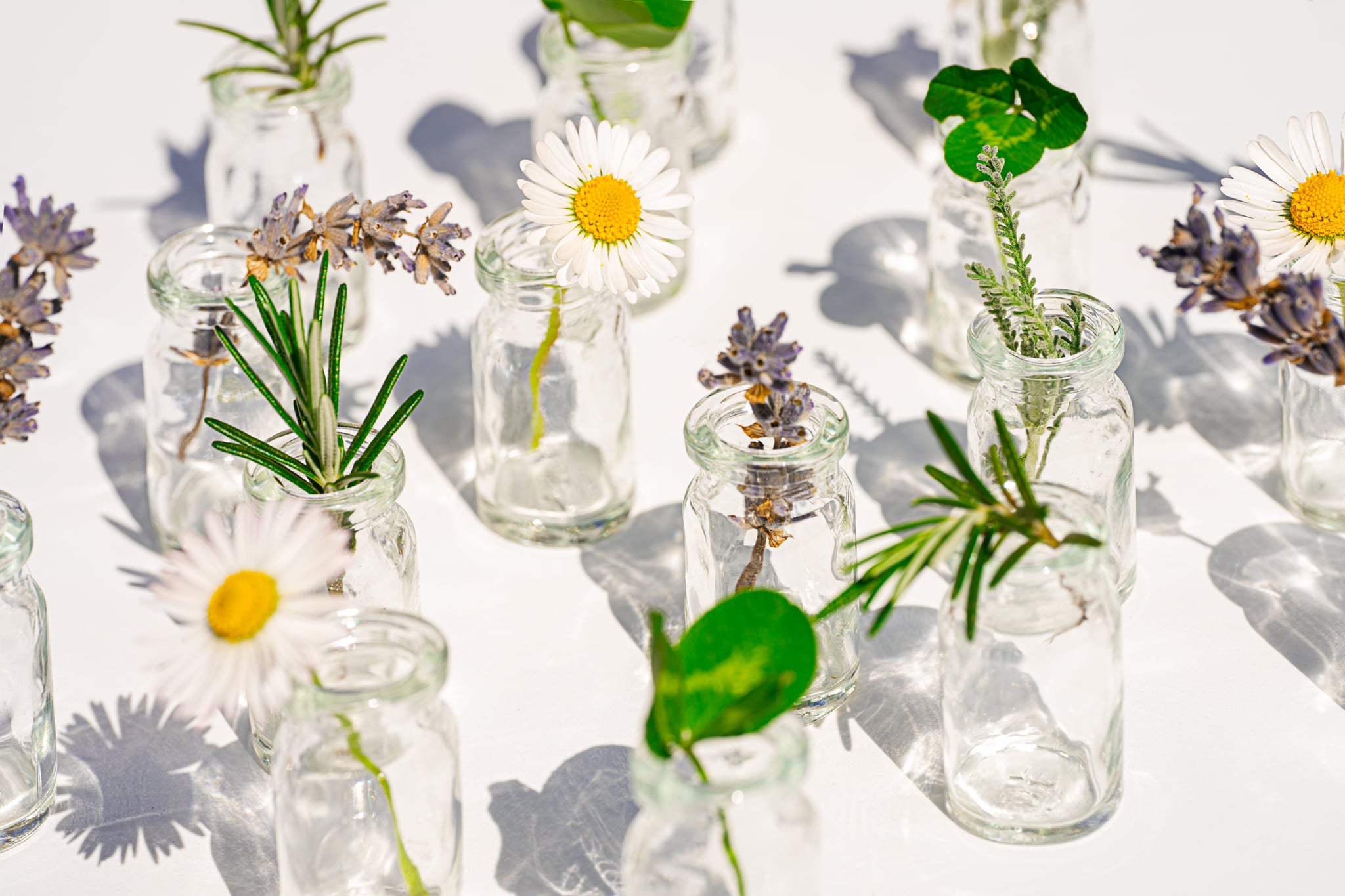
There has been a recent uptick in biotech beauty brands. They use biotechnology to create laboratory versions of ingredients normally found in nature. Nature and science intersect for a more sustainable alternative.
The beauty industry is always moving forward. Chemists and cosmetic brands are constantly innovating, not only to create new products, but also to find new ways to formulate those products. Biotech beauty is a great example of that. In recent years, you’ve probably seen a rise in brands calling themselves “biotech beauty brands” or using “biotech” in their products, but what does that mean?
“Biotech beauty refers to ingredients that are created using biotechnology, a science that uses living organisms, such as bacteria or microalgae, as power plants to produce a product of interest,” Nick Dindio, cosmetic chemist at SOS, tells POPSUGAR. BeautyGroup.
Simply put, biotech beauty uses lab-created ingredients to power its skincare formulations as a more sustainable alternative to natural ingredients. (Think lab-grown versus mined diamonds.) This new wave of beauty product manufacturing fuses the best of both worlds, science and nature, and has a long list of benefits.
To break down more on biotech in the beauty industry, read on for everything you need to know about the trend, from how it works to the environmental impact.
What is biotech beauty?
Biotech beauty fuses science and nature for a more sustainable and effective solution. “Biotech beauty is the fusion of biology and technology, harnessing biological processes to create and produce more sustainable, high-performance materials and ingredients that are valuable for beauty products,” says Tammy Yaiser, vice president of product development of Algenist, a biotechnology company. skincare brand. “Biotechnology uses biological processes and microorganisms such as algae, enzymes, bacteria and yeast to become manufacturing plants to create and produce regenerative ingredients.”
Biotechnology is not exclusive to beauty: it has historically been used in medicine and is responsible for a large number of solutions to common health problems, such as infertility and cardiovascular diseases. In beauty, however, “using these technologies allows us to develop superior ingredients and molecules for use in cosmetic and skin care products with demonstrable results,” says Lauren Otsuki, co-founder, executive vice president and chief innovation officer at biotech. skin. -Care of the brand Ourselves.
You may think of biotech beauty as overlapping with “clean” and “green” beauty, but it’s a separate entity unto itself. Instead of using real ingredients from nature, which is what all natural, clean, green beauty focuses on, they are using those ingredients as a model to recreate an alternative solution in a lab.
How does biotech beauty work?
The term “biotech beauty” encompasses different technologies and each company does it a little differently, but the process goes something like this: “In general, biotech beauty companies will grow a microorganism under controlled conditions and may manipulate the organism to produce a molecule or mixture of molecules,” says Dindio.
Otsuki adds that the process involves “creating and developing materials tailored for specific applications and performance, making them through more sustainable processes, and producing them in a controlled environment that allows for greater reliability, purity and quality,” he says.
Beauty ingredients made with biotechnology
Biotechnology can be used to create a variety of skincare ingredients, including hyaluronic acid, collagen, natural preservatives, and even fragrances. “A few notable ones are ferments, emollients, and active ingredients,” says Dindio. “This category is expanding rapidly.” It is especially useful for creating vegan alternatives for ingredients that would traditionally only be found in plants and animals.
“Biotechnology enables the development of various types of ingredients through fermentation and synthesis, such as analogs of animal-derived ingredients (hyaluronic acid and collagen), peptides, or other small molecules,” says Otsuki. “These ingredients can mimic natural proteins or compounds in the skin that are important for improving skin tone and pigmentation, loss of skin elasticity, pore size, and other signs of aging.”
Another great example of biotech beauty in action is natural preservatives. Preservatives are essential to ensure products don’t spoil before we have a chance to use them, but they’ve gotten a bad rap lately and the use of artificial preservatives has been a problem for many brands struggling to move on. . “Everything natural.” “An example of biotech beauty is using the fermentation process of fruits and vegetables to create natural preservatives,” says Elina Fedotova, celebrity esthetician, cosmetic chemist, and founder and chief formulator of Elina Organics. “Now we can use the technology to create preservatives from nature.”
The environmental benefit of biotech beauty
Biotech beauty not only produces innovative and effective ingredients that can address a variety of skincare concerns, it’s also good for the environment. “Using biotechnology to develop skin care products means that we are producing ingredients in a laboratory and not getting them from scarce natural sources like plants and animals,” says Otsuki.
Adds Yaiser: “Many traditional ingredients used in beauty require a significant amount of precious natural resources, such as land, water and energy to produce them. Biotech beauty enables materials that are more sustainable and at their next level, regenerative, allowing a cleaning High purity, safe and naturally derived ingredients that at the same time reduce negative impacts on the environment”. This helps reduce a company’s carbon footprint and, when formulated internally, reduces the risk of external supply chain issues slowing things down.
“This biotech beauty trend is amazing because it’s really an intersection of sustainability, technology and efficacy,” says Dindio.
Source: www.popsugar.com